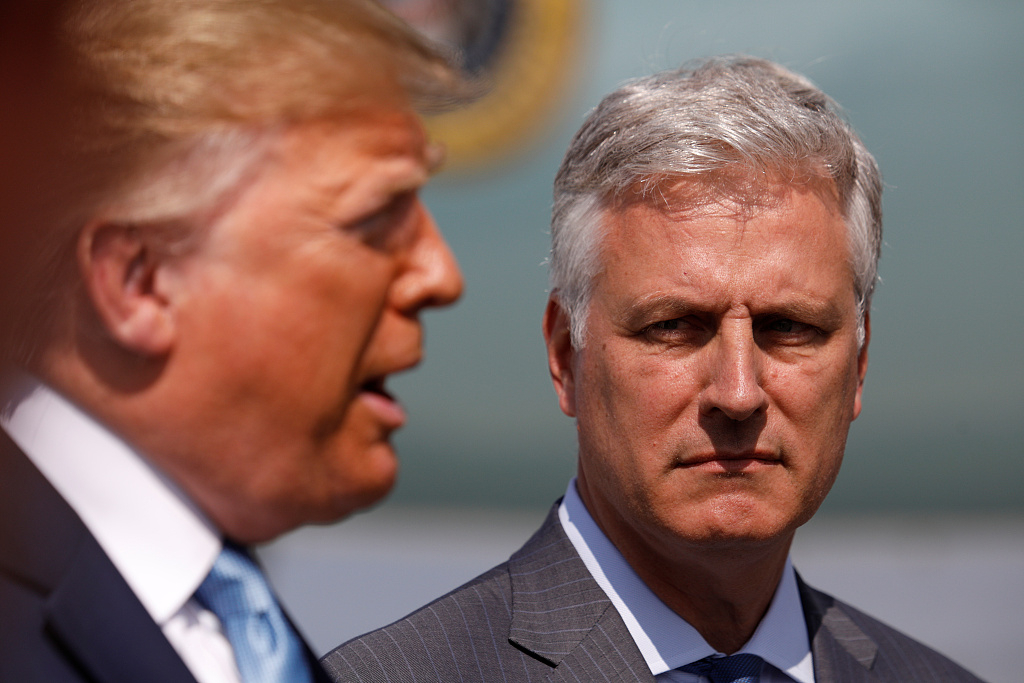U.S. President Donald Trump's new national security adviser, Robert O'Brien, said on Thursday he plans to reduce the size of the National Security Council (NSC) by about a third in coming months and limit the NSC's role to gathering options for Trump rather than directing foreign policy.
O'Brien appears eager to reinstate the inter-agency coordinating role for which the NSC was originally conceived after conservative hawk John Bolton's tenure in which he drew fire for not adequately consulting other agencies. Trump fired Bolton last month over strong policy disagreements.
"We're going to coordinate policy out of the White House, we're not going to operationalize national security and foreign policy as the NSC out of the White House. That's the work of the departments and agencies," O'Brien told Reuters in an interview.
O'Brien was the U.S. special envoy for hostage affairs when he was tapped by Trump on September 18 to be his fourth national security adviser, a choice that had the blessing of Secretary of State Mike Pompeo.

U.S. President Donald Trump (L) talks to reporters with Robert O'Brien after he named O'Brien as his fourth White House national security adviser at Los Angeles International Airport in Los Angeles, California, September 18, 2019. /VCG Photo
U.S. President Donald Trump (L) talks to reporters with Robert O'Brien after he named O'Brien as his fourth White House national security adviser at Los Angeles International Airport in Los Angeles, California, September 18, 2019. /VCG Photo
A California lawyer with U.N. and State Department experience, O'Brien will have to navigate enormous policy challenges, including Republican backlash to Trump's decision this week to withdraw some U.S. troops from northeast Syria, a move that enabled Turkey to begin an incursion against U.S.-allied Kurdish fighters.
O'Brien has told aides his job is not to tell the president how the world works and what he should do but to ensure he has options. He seeks to bolster the role of the Cabinet departments in crafting policy rather than have the NSC attempt to do it.
He told Reuters he was happy to offer Trump his own national security opinions if asked, but only after the president had already heard from his Cabinet.
The National Security Council has played a powerful foreign policy role over the decades since it was created in 1947 under President Harry Truman.
Some national security advisers have beefed up staff and run foreign policy out of the White House to the chagrin of officials at the State and Defense departments.
Source(s): Reuters